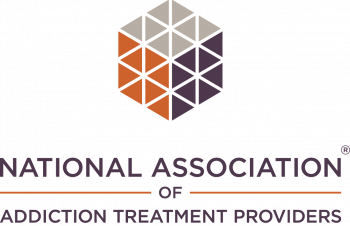Opiate abuse can be one of the hardest addictions to overcome. Opiates work by altering the way your brain perceives pleasure and pain. People might be prescribed opiates to help manage chronic pain, but keep taking them in ways other than as prescribed because they want to experience the feelings of euphoria caused by the substance. Long-term opioid use can cause permanent changes to your brain chemistry. You can find help with an opiate addiction treatment program by reaching out to TruHealing Gaithersburg. We understand the challenges that come with trying to overcome a dependency on such a powerful drug.
How Do I Know If I Need Treatment for Opiate Addiction?
It can be challenging for people to recognize the signs of addiction in themselves. They may feel that they have everything under control. Some people manage to hold things together for a long time while struggling with opioid abuse.
Eventually, the drug starts to take a toll on different aspects of your life. Below are some signs you should watch for that can indicate your need to seek treatment for opioid addiction.
1. You Start Taking More Than the Prescribed Dosage of Opiates
Your initial exposure to an opioid may start with a doctor’s prescription to treat a pain condition. While some people have no issues if they follow the instructions, others become dependent on opiates. You may be especially vulnerable if you start using opioid drugs on a long-term basis. They are intended to be a short-term fix, not something you should rely on permanently.
The brain typically responds to long-term opioid use by building up a tolerance. That may prompt you to take over your prescribed dosage as you try to reproduce the effects you felt previously. Taking too many opiates at one time can put you at risk for an overdose.
2. You Are Unable to Control Your Opiate Use
You may start to sense that your opiate abuse may be getting out of control. However, many people in that situation find themselves unable to curb their opioid use. That can be due to various psychological, environmental, and genetic factors.
For example, you yourself may never have had a problem with drugs before but may have a family history of addiction. Mental health disorders like depression or anxiety can make you more vulnerable to developing an addiction to opioids.
Another reason you may not be able to stop using opioids is that you start having withdrawal symptoms. That can include feeling nauseous, anxious, or depressed when trying to give up on opioid abuse.
3. You Become Consumed With Finding or Taking Opiates
As your addiction progresses, you may start experiencing cravings. People often pursue other avenues of obtaining opiates if they cannot get another prescription from a doctor. They may end up in financial ruin because after using all their financial resources in pursuit of opioids. When opioid pills become too expensive, individuals may turn to heroin as a substitute, which brings its own set of problems.
4. You Start Neglecting Important Obligations
Things may get to a point where you are unable to focus on anything but your addiction. A failure to live up to obligations at school, work, or home because of your opioid use is a huge red flag of a possible opiate addiction. Many individuals with an opiate addiction end up losing their jobs, homes, families, and future prospects.
Treat Your Opiate Addiction at TruHealing Gaithersburg
TruHealing Gaithersburg provides holistic therapy for individuals looking for a sanctuary as they work through substance abuse issues. Take some time to review our available programs, including:
- Mental health treatment
- Drug addiction treatment
- Alcohol rehab program
Contact TruHealing Gaithersburg at (833) 625-0398 today if you need help overcoming an opiate addiction.









